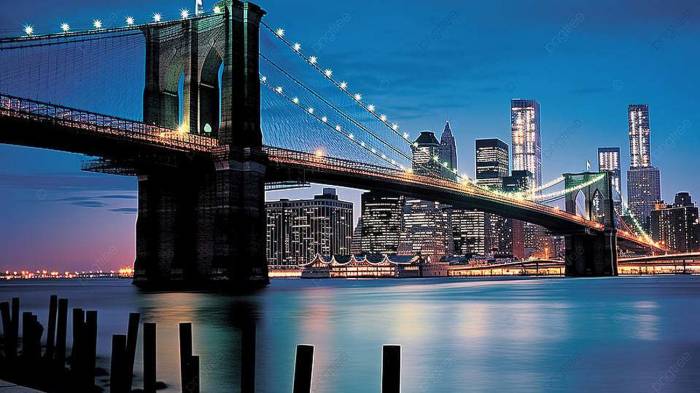New York City Weighs Reducing Liquor Stores Amid Rising Health Concerns Over Alcohol Abuse
Officials cite links to cancer and heavy drinking as business owners warn of economic impact on tourism and nightlife
2025-09-08

New York City officials are considering a plan to reduce the number of liquor stores as part of a broader effort to address public health concerns related to alcohol abuse. The city’s Department of Health released a report last week that links high alcohol consumption to several types of cancer, including mouth, throat, larynx, esophagus, liver, colorectal, and breast cancer in women. The report is part of Mayor Eric Adams’ “HealthyNYC” agenda and suggests that neighborhoods with a higher density of liquor stores also see higher rates of heavy drinking.
According to the Department of Health, neighborhoods with the most liquor stores have a heavy drinking rate of 12 percent, compared to just 4 percent in areas with fewer outlets. The city currently has nearly 25,000 businesses licensed to sell alcohol, with about 1,500 classified as liquor stores. The report recommends reducing the number of these stores in certain neighborhoods, restricting alcohol advertising, and increasing sales taxes and drink prices. These measures are reminiscent of past public health campaigns against tobacco.
Mayor Adams endorsed the report’s findings, noting that the concentration of liquor stores is linked to increased heavy drinking and disproportionately affects communities of color. He emphasized the need for continued efforts to build a healthier city. The report also found that men and higher-income residents are more likely to drink alcohol.
The proposal has drawn criticism from business owners and industry groups. Michael Correra, executive director of the Metropolitan Package Store Association and owner of Michael Towne Wine & Spirits in Brooklyn Heights, argued that liquor stores already operate in a controlled environment and promote responsible drinking among adults. He also pointed out the economic importance of tourism and nightlife in New York City, citing data showing that 64.3 million tourists visited last year and spent $51 billion, supporting over 388,000 jobs.
Some bar owners expressed frustration with the proposal, comparing it to excessive government intervention. State Conservative Party chairman Gerard Kassar called the idea “nanny government” and said it was anti-business and anti-freedom.
The Department of Health previously considered similar measures under former Mayor Mike Bloomberg. The renewed focus on reducing alcohol-related harm comes as city and state officials promote the growth of New York’s legal cannabis industry.
The report identified Manhattan neighborhoods as having the highest concentration of liquor stores—between 21 and 45 per 100,000 residents—along with parts of downtown and northern Brooklyn. These areas also had the highest percentage of heavy drinkers, ranging from 10.3 percent to 15 percent of the population. In Staten Island and southern Brooklyn neighborhoods like Bay Ridge, heavy drinking rates were also notable at between 5.7 percent and 10 percent.
Luke Nasta, founder and CEO of Camelot Counseling Centers on Staten Island, said that substance use is common in his borough and described it as “business as usual.” He noted that both alcohol and marijuana can serve as gateway drugs leading to more serious substance abuse.
The Department of Health’s recommendations include policy options such as warning labels on alcoholic beverages, reducing the number of alcohol retailers, restricting advertising, and implementing minimum pricing or higher taxes on alcohol products. Minimum pricing would raise the cost of cheaper alcoholic beverages like beer or wine.
The study highlighted disparities in cancer rates linked to alcohol use. For example, female breast cancer rates were higher among white women but death rates were higher among Black women. Colon cancer rates were higher among men than women—40 versus 29 per 100,000 residents—and liver cancer rates were three times higher among men than women.
Acting Health Commissioner Dr. Michelle Morse said that while alcohol use is common among adults in New York City, its connection to certain cancers is not widely known. She encouraged residents to make cancer screenings part of their regular healthcare routine for early detection.
As city officials weigh these policy options, debate continues between public health advocates seeking to reduce alcohol-related harm and business leaders concerned about economic impacts on local merchants and the hospitality industry.
Founded in 2007, Vinetur® is a registered trademark of VGSC S.L. with a long history in the wine industry.
VGSC, S.L. with VAT number B70255591 is a spanish company legally registered in the Commercial Register of the city of Santiago de Compostela, with registration number: Bulletin 181, Reference 356049 in Volume 13, Page 107, Section 6, Sheet 45028, Entry 2.
Email: [email protected]
Headquarters and offices located in Vilagarcia de Arousa, Spain.